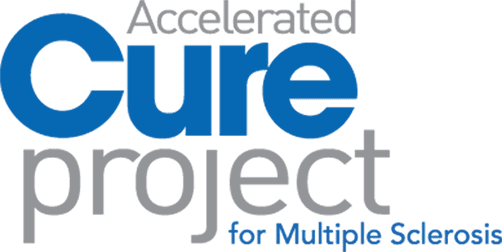iConquerMS empowers all people living with MS to participate in research. We are seeking participants from all parts of the country, from all backgrounds and ethnic groups, and of all ages and types of MS. With this diversity, researchers can dive deep into the workings of the disease and answer questions like what causes MS? What affects the progression of MS? What treatments work best in which people? How can we develop better treatments and eventually find a cure?

According to the National MS Society, there are four types of MS:
- Clinically Isolated Syndrome
- Relapsing remitting MS (RRMS)
- Secondary progressive MS (SPMS)
- Primary progressive MS (PPMS)
Approximately 10 to 15 percent of people with MS have PPMS, where neurologic functions steadily worsen from the beginning. There are no flares in disease activity and there is no recovery, or remission. PPMS affects men and women equally. On average, symptom onset occurs between ages 35 to 39 and the rate of disease progression varies.
There are more than a dozen FDA-approved disease modifying therapies for the treatment of RRMS. These drugs typically work by decreasing inflammation and reducing the number of relapses an individual may have. They are not usually effective in treating PPMS because this form of the disease does not involve significant inflammation. Ocrevus (ocrelizumab) is the only FDA-approved treatment for PPMS. It is administered by infusion (600 mg) every 6 months.
A distinct type of nerve damage occurs in PPMS. It involves much less inflammation than RRMS. Individuals with PPMS tend to have more lesions in the spinal cord and the lesions tend to contain fewer inflammatory cells.
Research to better understand and treat progressive MS continues with additional novel treatments in the pipeline.
PPMS medications in Phase 3 clinical studies:
Medication | How is it taken? | How does it work? | Relevant Research |
Ocrevus | Infusion | Targets lymphocytes | Research is underway looking at the safety and effectiveness of a higher dose of Ocrevus in adults with PPMS. |
Masitinib | Oral | Tyrosine kinase inhibitor | The MAXIMS study is evaluating whether or not Masitinib could be a potential treatment for progressive forms of MS. |
Tolebrutinib | Oral | Tyrosine kinase inhibitor | Tolebrutinib has shown promise for the treatment of RRMS in Phase II trials. The PERSEUS study is determining its effectiveness in PPMS. |
Fenebrutinib | Oral | Tyrosine kinase inhibitor | The FENtrepid study is assessing the safety and effectiveness of Fenebrutinib, compared with Ocrevus, in adults with PPMS. |
PPMS medications that are in or have undergone Phase 2 clinical testing:
Medication | How is it taken? | How does it work? | Relevant Research |
Mavenclad | Oral | Targets lymphocytes | The ChariotMS study is evaluating if Mavenclad can slow progression of upper limb disability in people with advanced MS. |
Ibudilast | Oral | Phosphodiesterase inhibitor | Research shows Ibudilast slows the rate of brain atrophy in progressive MS, but it has significant side effects. |
Stem cell therapy has shown substantial benefit in people with RRMS. It’s important to note that more research is needed before it becomes a widely used treatment for PPMS. The goal of stem cell therapy is to promote the immune system to repair damage and
reduce inflammation in the brain and spinal cord. In a procedure known as hematopoietic stem cell transplantation (HSCT), stem cells are collected from a person’s own tissues, like bone marrow or blood, and then reintroduced after their immune system has been suppressed.
What research has been done on HSCT as a treatment for PPMS?
Investigators in the United Kingdom have conducted a series of studies into this subject:
Mesenchymal stem cells (MSCs) are adult stem cells isolated from different sources, such as bone marrow, fat tissue, umbilical cord or blood, that can differentiate into other types of cells.
What research has been done on MSCs as a treatment for PPMS?
Researchers at the Tisch Multiple Sclerosis Research Center of New York have conducted the following studies:
Complementary and alternative therapies (CAM) are considered nonconventional treatments (for example, acupuncture and dietary supplements).
Many people incorporate some type of CAM as part of their MS management, even though very limited research has been done to evaluate their safety and effectiveness in MS. Anyone considering this option should talk to their doctor first and continue to adhere to any prescribed treatments he or she recommends.
What research has been done on CAM for progressive MS?
CAM in general – – A 2010 study showed the most promising CAM for progressive MS include a low-fat diet, omega-3 fatty acids, lipoic acid and vitamin D supplementation. |
Biotin – – A 2016 study showed high-dose biotin treatment is well tolerated and led to reversal of MS-related disability in a subset (13%) of participants with progressive MS. – A 2020 study suggests that high-dose biotin does not significantly improve disability or walking speed in people with progressive MS and warns that this treatment interferes with laboratory testing, which may have harmful health consequences. |
Lipoic Acid – – A 2017 study found lipoic acid treatment led to significantly less brain atrophy in participants with SPMS over a 2-year period and it was well tolerated. – The LAPMS trial is evaluating whether lipoic acid can preserve mobility and protect the brain in progressive forms of MS |
People living with PPMS face the possibility of gradually losing function with each passing day, potentially losing the ability to do the things they enjoy. Accelerating research into finding effective treatments for this and other types of the disease is of prime importance. iConquerMS is leading the charge in a new generation of MS research, where people living with the disease are at its center, contributing their data and ideas as a driving force for future studies.

If you haven’t already, please consider joining iConquerMS, the only participant-powered MS research network, today! Together, we can advance MS research more rapidly toward better treatments and eventually cures!








